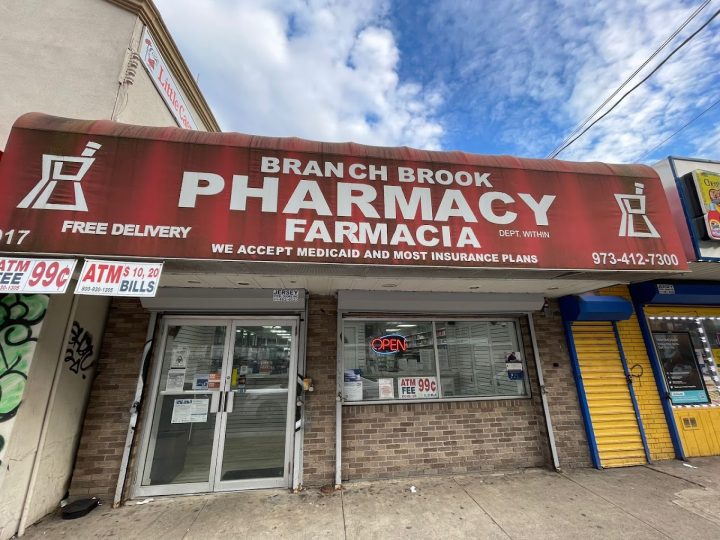
If you’re like most people, you probably don’t know much about over-the-counter (OTC) medications. OTCs are drugs that can be sold without a prescription. They’re available in pharmacies, supermarkets, and even some convenience stores.
With so many options available, it can be hard to know which OTC medication is right for you. That’s where your pharmacist comes in. Pharmacists are trained to know about the different OTC options and can help you choose the right one for your needs.
Ask your pharmacist the below five questions discussed below, before buying an OTC medication. You can use these basic questions to filter and find out what OTC pills are available for quick relief. However, the OTC medicines are only temporary relief, not a permanent cure for consistent symptoms of major illnesses. Consult a doctor if your symptoms persist after a few weeks. The last thing you would want to do is put your life or dear ones at risk by taking incorrect medication or medication that is too late.
Why is it important to consult your pharmacist about OTC medications?
It is important to consult a pharmacist when selecting OTC medications because they can provide advice on which medications are most suitable for you, including which medications have been approved for your particular condition. They also have the expertise to advise on the right dosage, side effects, and interactions with other medications or supplements you may be taking. Pharmacists can also advise on any potential drug allergies you may have and provide information on how to recognize and manage possible drug reactions.
What are some of the questions you should ask your pharmacist about OTC medications?
When speaking with your pharmacist about OTC medications, it is important to make sure that you ask the right questions. Pharmacists have the expertise to provide advice and can decrease the confusion associated with selecting OTC medications. Some of the questions you should ask are:
- What OTC medications do you recommend for my condition?
- What is the dosage recommended and how often should I take it?
- Are there any possible interactions of this medication with my other medications or supplements?
- Are there any possible side effects of this medication?
- Is this the best OTC medication for my condition, or are there other alternatives I should consider?
What are some common OTC medications that people take?
OTC medications are usually taken to relieve minor symptoms like headaches, stomachaches, colds, coughs, and allergies. Common OTC medications include:
– Pain relievers such as ibuprofen, acetaminophen, and naproxen
– Allergy medications like diphenhydramine and loratadine
– Decongestants like pseudoephedrine and phenylephrine
– Cough suppressants like dextromethorphan
– Heartburn remedies such as antacids and proton pump inhibitors
– Asthma inhalers containing Albuterol
– Cold and flu remedies such as acetaminophen and guaifenesin
– Vitamins and supplements such as iron and omega-3 fatty acids
– Stomach remedies like laxatives, antidiarrheal medications, and motility stimulants.
What are some things to keep in mind when taking OTC medications?
When using OTC medications, it is important to be aware of the potential side effects and interactions with other medicines you may be taking. It is also important to read the labels of OTC medications carefully and to follow dosage instructions.
Before taking OTC medications, it is important to remember the following questions:
– What is the active ingredient in the medication?
– What is the correct dosage for the medication?
– Are there any potential side effects associated with the medication?
– Are there any potential interactions with other medications you may be taking?
– Is there any potential for addiction?
To wrap things up
When considering OTC medications and whether to take them, there are a few things to keep in mind. First, consult with your doctor or pharmacist before taking any medication, even if it is available over the counter. Second, make sure to read all labels and warning information carefully. Third, be aware of potential side effects or interactions with other medications you may be taking. Finally, always follow the recommended dosage of the medication, as taking too much can be extremely dangerous.
By asking the right questions and following the right advice, you can find the right OTC medication for your health needs. Don’t be afraid to ask questions, and be sure to talk to your doctor or pharmacist if you have any concerns. Remember, it’s always better to be safe than sorry!
Branchbrook Pharmacy, your local community pharmacy

Located in New Jersey, Branchbrook Pharmacy is your local community pharmacy and one of the leading providers of quality healthcare and over-the-counter (OTC) medications. We provide medications of top-quality to maintain your family’s optimal health. Our store is stocked with a wide selection of OTC medications for a variety of needs, and our friendly and knowledgeable staff is ready to answer any questions you may have about the best medication for you.
We provide medications for the following conditions:
– Painkillers: Painkillers are used to reduce mild to moderate pain and can be found in tablet, capsule, or syrup form.
– Allergy relievers: Allergy relievers can help relieve symptoms caused by seasonal allergies such as runny nose, watery eyes, sneezing, and itching.
– Cold and flu treatments: Cold and flu treatments are used to reduce the severity of symptoms such as fever, coughing, and congestion.
– Digestive aids: Digestive aids are used to relieve constipation, indigestion, heartburn, and bloating.
At Branchbrook Pharmacy, we are dedicated to providing you with the highest quality of OTC medications and exceptional customer service. If you are unsure of what OTC medication you should take, feel free to consult with our staff. We are here to help!

